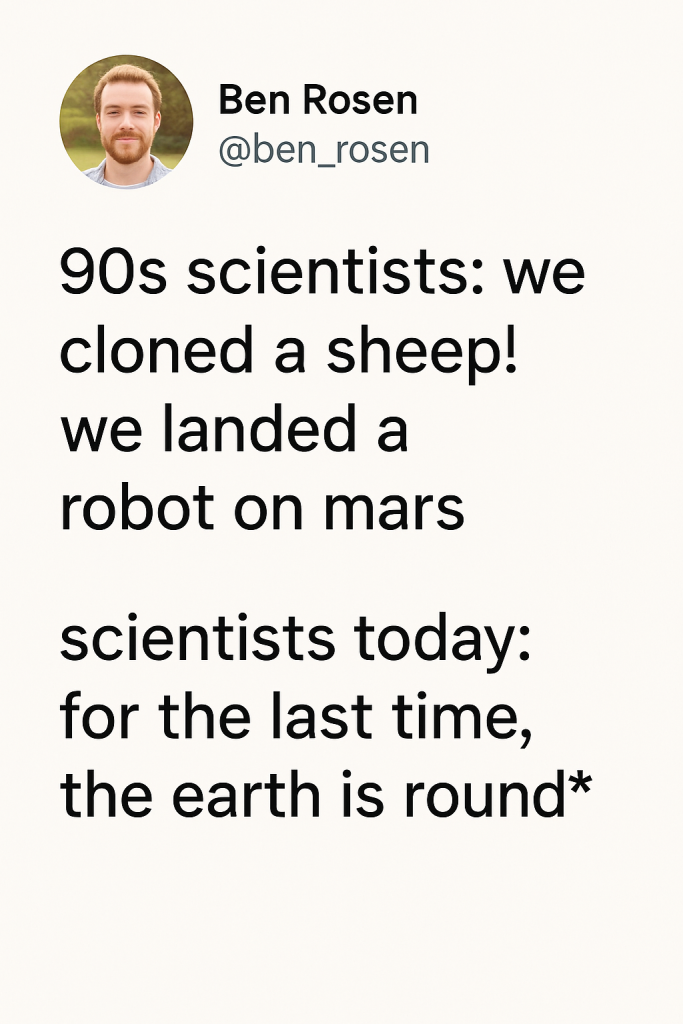In a digital age where social media memes often serve as both entertainment and commentary, a recent post by user Ben Rosen (@ben_rosen) has captured widespread attention, humor, and introspection about the advances and attitudes in science spanning generations. The meme, blending sharp wit with cultural observation, contrasts the groundbreaking achievements of 1990s scientists with modern-day skepticism surrounding well-established facts.
The meme features a simple yet impactful image alongside a caption that reads: “90s scientists: we cloned a sheep! we landed a robot on mars! scientists today: for the last time, the earth is round 3:” This humorous take on scientific progression highlights the awe-inspiring breakthroughs of the 1990s — such as the cloning of Dolly the sheep in 1996, a landmark in genetic engineering, and NASA’s successful deployment of robotic explorers like Mars rovers that expanded humanity’s reach beyond Earth.
However, the meme simultaneously points to a puzzling cultural trend where some modern-day groups question widely accepted scientific knowledge, including the shape of the Earth itself. This apparent disconnect between awe for scientific accomplishment and skepticism of fundamental facts has sparked both laughter and serious discussion across social media platforms, particularly among millennials who experienced the ‘90s scientific milestones firsthand and now observe evolving public discourse on science.
Experts note that the meme taps into broader societal conversations about misinformation and the challenges scientists face in communicating complex truths today. While the 1990s brought many clear, headline-grabbing successes — from cloning to space exploration — contemporary science increasingly contends with a digital environment where conspiracy theories and distrust can abound. This meme cleverly juxtaposes those eras and conveys a subtle critique of how cultural attitudes towards science have shifted.
Moreover, the viral spread of this meme has ignited a popular trend of sharing funny and relatable content that celebrates millennials’ connection to both past and present scientific narratives. Social media users have responded by contributing their own memes emphasizing the impressive feats of past decades and poking fun at the contradictions seen in modern skepticism.
Interestingly, the meme not only serves as comedic relief but also as a reminder of the enduring impact of the scientific community’s work during the 1990s—a period often remembered for its optimistic breakthroughs and relatively less polarized public attitudes toward science. It simultaneously invites reflection on how science communication might adapt today to bridge the gap between empirical knowledge and public belief.
Analysts predict that such content will continue to resonate as millennial audiences use humor to engage with complex ideas, blending nostalgia with critique. As modern technological advances accelerate, balancing reverence for scientific achievements with effective education remains a key challenge highlighted by the viral popularity of posts like Ben Rosen’s.
In conclusion, this meme succinctly captures a cultural moment where humor, history, and skepticism intersect. It offers a playful yet pointed commentary on how science’s triumphs are celebrated and questioned in equal measure, proving that millennials “still got it” in their ability to spark conversation through clever digital storytelling.



